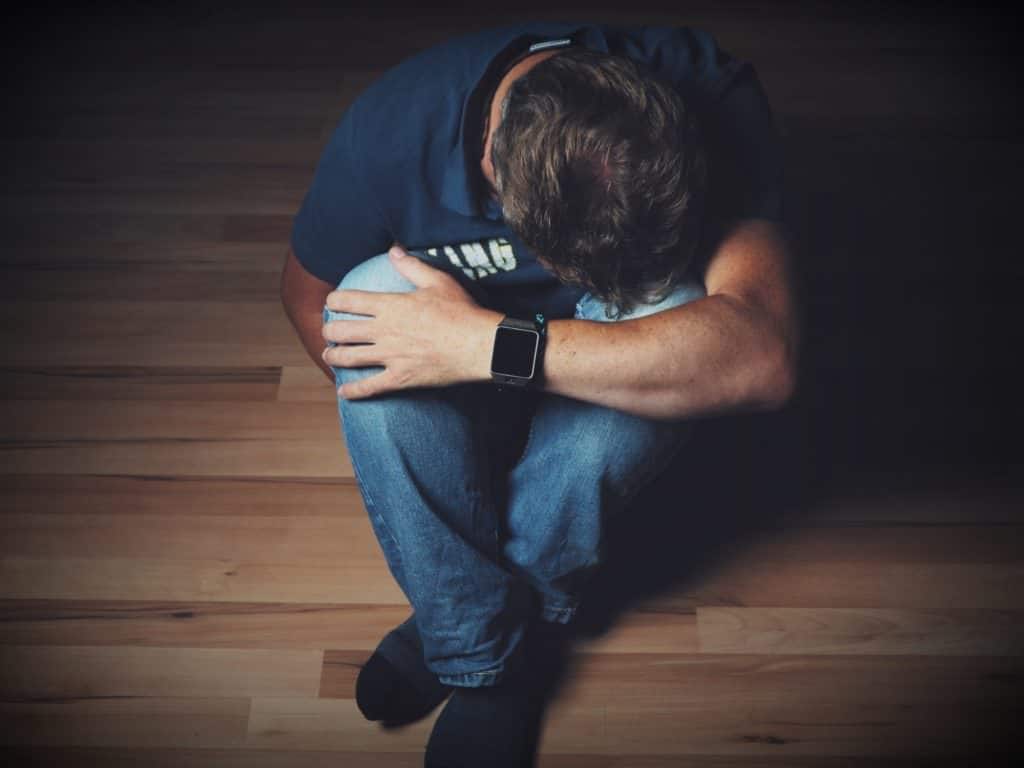Do you have a loved one suffering from depression? It’s very possible you do or will at some point. Nearly 7% of all American adults have had a major depressive episode in the last year.
If they’ve turned to alcohol, things could be even worse. We know you want to help them beat the destructive cycle of alcohol and depression!
We’ve put this article together to help you understand what they may be going through and to help you help them recover. Read on to learn what you can do!
How Do We Define Depression?
Depression is a mental illness that has many forms. They all feature feelings of sadness and hopelessness that can progress even to the point of suicidal thoughts.
It is very common for almost everyone to experience some degree of depression at some point in their life. As life ebbs and flows, we experience seasons of joy and seasons of sorrow. For some, depression can be a persistent problem and be severely debilitating.
So how do you know if your loved one is depressed or just having a bad few days? There are several types of depression that each present themselves in different ways, though many share some common symptoms. These symptoms may include:
- Anger/irritability
- Trouble concentrating
- Difficulty making decisions
- Loss of interest in things one used to enjoy
- Decreased activity or productivity
- Weight gain or loss from a change in appetite
- Insomnia or hypersomnia
- Feelings of sadness and/or hopelessness
- Low self-esteem
- Suicidal thoughts
Understanding a little more about the different types of depression can help you identify what your loved one is going through and how you can help them.
Types of Depression
Seasonal Affective Disorder (SAD)
This is a very common form of depression that typically sets in around the fall and winter months as the days get shorter. Vitamin D deficiency can be a contributing factor, and exposure to sunlight helps boost Vitamin D levels and can help combat the symptoms of SAD.
Persistent Depressive Disorder
This is defined as a depressive mood and symptoms lasting longer than two years. In many cases, this is a chronic lifetime condition.
Major Depressive Disorder
This is a very serious form of depression where symptoms interfere largely with the sufferer’s ability to function normally. This is the form of depression where people may not show up to work or spend the entire day in bed when they have serious responsibilities to attend to.
Postpartum Depression
This is caused by the physical and hormonal changes from having a child. About 1 in 9 new mothers experience postpartum depression.
Psychotic Depression
This sees the patient afflicted with psychotic episodes in addition to depression. They may experience hallucinations and false beliefs.
Alcohol and Depression: A Deadly Cocktail
The combination of alcohol and depression can be a deadly one. Someone suffering from both alcoholism and depression finds themselves in a dangerous situation as the two conditions tend to feed on each other.
It is a little like the dilemma of the chicken and the egg; which came first the depression or the alcoholism? The answer is: it depends on the person. Both conditions can lead to or worsen the other.
Depression can lead to alcoholism as the sufferer attempts to escape their feelings of sadness with the momentary buzz of alcohol. They may become dependant on alcohol in order to relax or sleep. They attempt to self-medicate for the symptoms of depression but not treat the underlying cause.
Alcohol can lead to depression because it messes with our brain chemistry. Our nervous system uses chemicals to communicate messages and feelings. Alcohol interferes with this in multiple ways.
Alcohol and the Brain
Alcohol triggers your brain to release GABA, an inhibitory neurotransmitter. This is what makes us feel relaxed when we drink, and in large amounts causes tiredness, slurred speech, and difficulty walking. Alcohol abuse causes our brains to adjust to the higher levels of GABA and overcompensate by producing more excitatory neurotransmitters.
Excitatory neurotransmitters are what make us feel awake and alert. When our brain is overproducing them, we may have trouble relaxing or sleeping without alcohol. This perpetuates the cycle of self-medication to achieve a feeling of normalcy.
Alcohol abuse also interferes with the way our brains regulate serotonin and endorphins. Serotonin is the chemical responsible for making us feel pleasure. Alcohol abuse causes our brains to produce less of it, which contributes to depressive feelings.
Endorphins are how our body fights pain and they fight both physical and psychological pain. Alcohol causes a release of endorphins which may temporarily numb the feelings of pain someone with depression is experiencing. This may drive them to seek alcohol when in pain, even though it is making the problem worse in many other long term ways.
Someone who has already been diagnosed with depression may be taking antidepressants. When antidepressants mix with alcohol it can actually worsen the symptoms of both alcohol intoxication and depression. The combination of alcoholism and depression can be a monumental problem and a viscous self-feeding cycle.
How Can You Help?
Watching a friend or relative battle both alcoholism and depression can be heartbreaking. You may begin to feel hopeless yourself as you watch the cycle continue to perpetuate itself.
The best way you can help them is by getting them professional help. Unfortunately, many treatment programs try to treat one disorder without addressing the other and how they impact and perpetuate each other.
When evaluating a treatment program, it is important to seek a dual diagnosis treatment approach. These are designed to treat a patient suffering from both alcoholism and depression and the relationship between the two.
Start The Road To Recovery
The good news is that recovery is possible! There are professionals waiting to assist your loved one who have dedicated their lives to see those suffering from addiction and depression recover and heal.
We have an excellent team, and we would love to help your loved one get on the road to recovery. They can beat alcohol and depression with the right help, and they already have the first important step: you! Thank you for taking the time to read this article and for caring for those around you who are hurting.
Contact us today to help your loved one get the treatment they need!
Author
-

President, CEO & Founder at Northbound Treatment Network
Paul Alexander is the CEO, President & Founder of Northbound Treatment Network in Newport Beach, California. He believes wholeheartedly in transformational leadership, organizational health and effective, fully integrated substance use disorder and mental health treatment. With over 27 years of experience in behavioral healthcare, Paul has extensive knowledge of “in vivo” treatment modalities, clinical development, operations, strategy, marketing and financial planning. He has been widely recognized for his development of collegiate-based residential treatment programs for students in recovery and authored a research study at The University of California confirming this modality’s effectiveness.
Paul’s comprehensive professional experience, willingness to innovate, and emphasis on organizational health are vital factors in Northbound’s continued success. Paul received his Certified Addiction Treatment Specialist training at Saddleback College in Mission Viejo, CA, and was awarded Outstanding Alumni Service Award in 2002. Paul holds a Bachelor of Arts degree in Criminology, Law and Society, Summa Cum Laude, from University of California, Irvine, and a Juris Doctorate degree from Loyola Law School of Los Angeles. Paul currently serves on The National Association of Addiction Treatment Providers (NAATP) board. In addition, he serves on The Family Recovery Foundation board and The CarePossible board in Orange County; both organizations are committed to raising funds for family recovery and treatment for former military personnel. Paul is in recovery himself and lives in Orange County with his wife Silvana and his two young sons, Noah and Dean.










